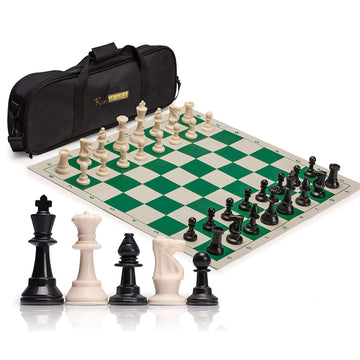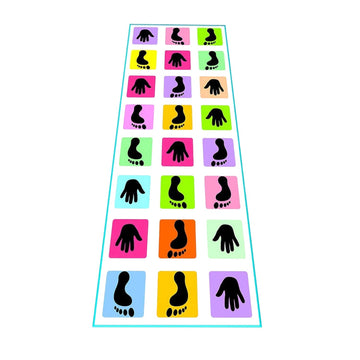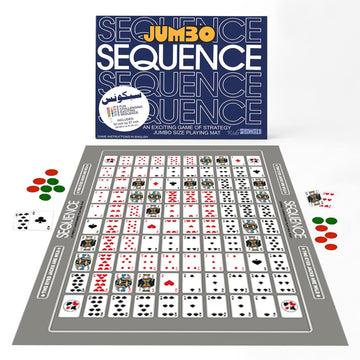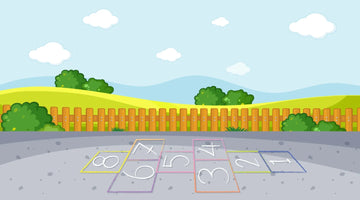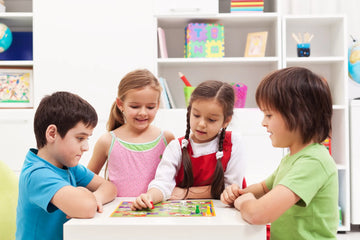
Introduction:
In today's tech-driven world, where screens dominate leisure time, traditional board games might seem like throwbacks. However, beneath their analog simplicity lies a rich tapestry of interactive learning experiences waiting to be unveiled. Board games transcend mere entertainment; they offer invaluable educational benefits that shape children's cognitive, social, and emotional development. From fostering strategic thinking to promoting cultural awareness, board games serve as catalysts for holistic learning in children.
Interactive Learning:
- Board games provide hands-on, interactive learning experiences that engage children in ways digital media often cannot. By physically manipulating game pieces, rolling dice, and making strategic decisions, children actively participate in their learning process. This active engagement enhances retention and understanding, making concepts more tangible and memorable.
Cognitive Development:
- Games like chess challenge children to think critically and strategically. They must analyze situations, consider various options, and predict outcomes – all essential components of cognitive development. Through repeated gameplay, children sharpen their problem-solving skills and learn to approach challenges with flexibility and creativity.
Numerical Skills:
- Many board games involve elements of mathematics, from counting spaces to managing resources. Games like "Monopoly" or "Ticket to Ride" introduce concepts of budgeting, probability, and spatial reasoning. By engaging with mathematical concepts in a fun and meaningful context, children develop a deeper understanding of numbers and improve their numerical proficiency.
Language Acquisition:
- Word-based games such as "Scrabble" or "Bananagrams" provide opportunities for language acquisition and literacy development. Players expand their vocabulary, practice spelling, and experiment with word formation in a playful environment. Additionally, games that require reading comprehension, like "Clue" or "Mystery of the Abbey," enhance language skills and promote literacy.
Social Interaction:
- Board games facilitate face-to-face interaction and socialization, fostering important social skills such as communication, cooperation, and empathy. Whether negotiating trades in "Settlers of Catan" or working together to solve a mystery in "Pandemic," children learn to navigate social dynamics and collaborate effectively with others.
Emotional Intelligence:
- Playing board games offers opportunities for emotional growth and self-regulation. Children experience a range of emotions, from excitement and joy to frustration and disappointment, as they navigate the ups and downs of gameplay. Through these experiences, they learn resilience, sportsmanship, and empathy – skills that are essential for navigating the complexities of the real world.
Cultural Awareness and Historical Understanding:
- Many board games offer insights into different cultures, historical periods, and geographical locations. Games like "Risk" or "Axis & Allies" immerse players in historical conflicts, while "Carcassonne" introduces them to medieval European architecture and geography. By exploring diverse cultures and histories through gameplay, children gain a deeper appreciation for the world around them and develop cultural literacy.
Cooperative Play:
-
Games that require cooperation, such as "Forbidden Island" or "Pandemic," promote teamwork and collaboration. Players must communicate effectively, share resources, and work towards a common goal. Through cooperative play, children learn to value teamwork, develop leadership skills, and understand the importance of collective effort in achieving success.

Geographical Knowledge:
- Certain board games, like "Ticket to Ride" or "7 Wonders," introduce players to geographical locations and landmarks around the world. By exploring maps, learning about different cultures, and connecting cities or landmarks, children expand their geographical knowledge and develop a deeper understanding of the world's diversity and interconnectedness.
Resilience:
- Board games provide a safe space for children to experience setbacks and failures in a controlled environment. Whether facing defeat in a game of "Chess" or encountering obstacles in "The Game of Life," children learn resilience and perseverance as they navigate challenges and setbacks. These experiences teach them to bounce back from failure, adapt to changing circumstances, and develop a growth mindset essential for lifelong learning and success.
Multi-sensory Learning:
- Board games engage multiple senses, offering a multi-dimensional learning experience. From tactile sensations of handling game pieces to auditory cues of rolling dice and visual stimulation of colorful game boards, children's senses are fully immersed in the gameplay. This multi-sensory approach enhances learning retention and makes educational concepts more tangible and accessible.
Creativity and Imagination:
- Many board games encourage creative thinking and imaginative play. Whether designing strategies in "Risk" or inventing stories in "Dungeons & Dragons," children have the freedom to express themselves creatively and explore their imaginations. This fosters a sense of curiosity, innovation, and originality, nurturing their creative potential and problem-solving abilities.
Healthy Competition:
- Board games provide opportunities for healthy competition, teaching children important lessons about winning and losing gracefully. By competing against peers in a fair and respectful manner, children learn sportsmanship, integrity, and the value of perseverance. They also develop a healthy attitude towards competition, understanding that success is not solely determined by winning but by personal growth and improvement.
Family Bonding:
- Board games offer a unique opportunity for families to bond and spend quality time together. Whether gathered around the dining table for game night or enjoying a rainy afternoon indoors, playing board games strengthens family connections and creates lasting memories. Through laughter, shared experiences, and friendly competition, families build strong relationships and cultivate a sense of belonging and togetherness.
Conclusion:
In a world filled with digital distractions, board games continue to shine as powerful educational tools that engage, inspire, and enrich young minds. From promoting cognitive skills to fostering social-emotional development, the benefits of board games for kids are multifaceted and profound. By embracing the educational potential of board games and incorporating them into children's learning experiences, we can nurture their growth, curiosity, and love for lifelong learning. So, the next time you reach for a board game, remember that you're not just playing, you're unlocking a world of educational possibilities for the children in your life.
